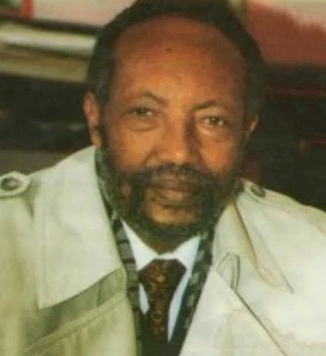
BY: EPHREM ANDARGACHEW
Tsegaye Gebre Medhin has written many unforgettable and consequential poems that span through time. In his poem, someone could notice his passion, deep understanding, pride, and patriotism the writer has to his country and his Pan African idenity. Like many African writers of his time, Tsegaye described the beauty of Africa, told his hope and expectation of what Africa should be in the future by writing poems in Amharic and English as well. Among these poems the most popular poem was “Hold My Hand”. The poem shows the self-searching of an African man who wishes to make himself free from the western influence and revive pride. The speaker of the poem in the first lines utters to rise and overcome the impending force that dismantled him from his African root.
Hold my hand black mother hold
I need to rise; I need to stand on my feet
To rise, to stand, and to accuse.
According to these lines, we see the interest of the African child to renew his African identity. The speaker seems without any power to depend on himself. So, he asks his mother Africa for help. He says this idea in the following lines too.
Though I were forbidden to suck your breast black mother
Though the wings of my sweet bird of youth are crippled
I need to draw courage from your stretched arms
To draw life, to draw strength
To draw hope from what flows in the view of your stretched arms
These lines show that Africans are not in a position to be free from their problems without the help of their mother country. So, he begs for the acceptance of his land. We understand from the poem that the African can have true freedom, confidence and assertion of his/her identity, and security of life only when he is in his land.
The speaker of the poem indicates that his effort is in search of identity. It seems that the African has understood the ravished black culture, which is estranged from his African root and perform the western value. And his long while separation from his African background resulted in insecurity in this life for he never feels at home, but rather an exile from someone’s world. With this condition, the Africans are motivated to accept their pride which has been ignored. He remembers and accepts his African pride of the past with the following lines.
But once I had a true name black mother
A name like the mighty spirit of Chaka
A name like the spirit of Herrera of Namaqua
Of Zuluand, of Matabelee…
All these statements are remembering his lost identity and lost glory. Now he believes he has lost all.
Shame no more glory now … it is raped with you
black mother
The speaker also believes that some forces perhaps the colonizers have destroyed the African great identity. And his loss is a result of this. But whatever it is now he is in a position to renew his roots in Africa so that he can manage his case freely. And he also understands and gives a message that Africans can have courage and life only through the understanding of his culture and acceptance of black identity.
In short, the poem indicates and portrays the good potential Africa has. The term black also means the light and beauty that Africa has in their black identity. Tsegaye believed Africans have wisdom and tradition that could help them rise up from bonds of colonialsm and live dignified and fullfilling life.
It is fair to say this poem have similar meaning, tone and objective with literary works of the time that initiated pan African sentiments and movements. This work has such a meaning like Chinua Achebe novel “Things Fall Apart,” or Ngugi Wa Thiong’o’s Weep Not Child, or painting of World Leaurate Afework Tekle.
Tsegaye Gebremedhin has also written an interesting English poem about the river Nile; “Nile”. His amharic poem “Peter at that time” is the most loved, many times quoted and presented in radio and TV shows. Tsegaye in this poem also insisted Ethiopians to look back their history, get inspiration and wisdom from the accomplishment of their forefathers. So that, they could solve their problems, live in harmony with one another, value wisdom over ignorance and realize development.
Tsegaye Gebre Medhin wasn’t a poet only. He was a versatile art figure who wrote plays, essays, and translated works of art from English to Amharic. He was an intellectual who wrote an extensive list of original literature and translated some of Shakespeare’s greatest works from English to Amharic. He is most known for his own distinctive style of poetry.
In 1959, Tsegaye was awarded UNESCO scholarship to study theatrical arts in Europe. He studied at the Royal Court Theatre in London, at the Comedie Francaise in Paris, and the Opera Theatre in Rome. He translated Shakespeare’s Othello, which was first staged in Ethiopia in 1963 and later published by Oxford University Press.
Through his writings and plays, Tsegaye tried Ethiopians to be aware of their history. He wrote about the inspiring stories of Ethiopia’s past political and religious leaders, and their actions of unparalleled heroism. He also brought to Ethiopians the best in the literature of the outside world from the works of Shakespeare to Moliere. And most of all, he gave generations of Ethiopians his own distinctive style of verse and other forms of literature that many other Ethiopian poets after him have come to adapt. Laureate Tsegaye Gebremedhin died in February 2006 at the age of 69.
The Ethiopian Herald June 15/2022




